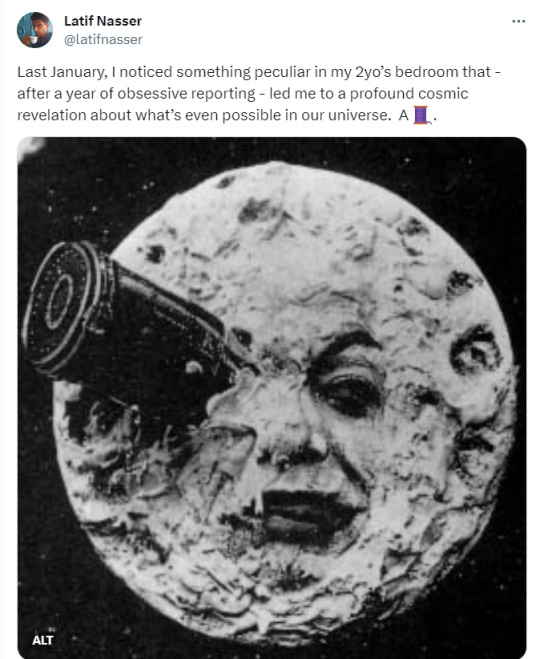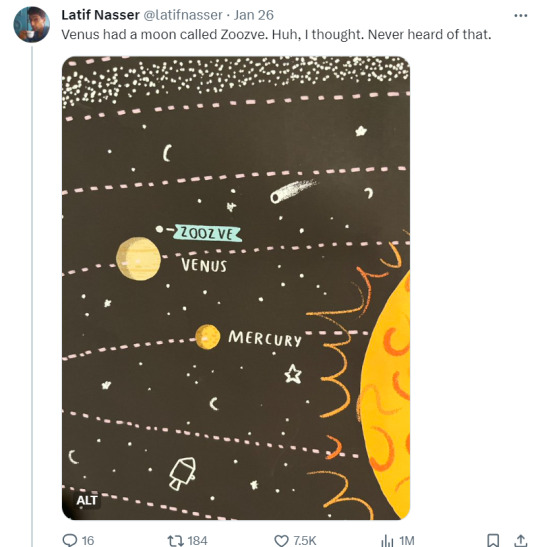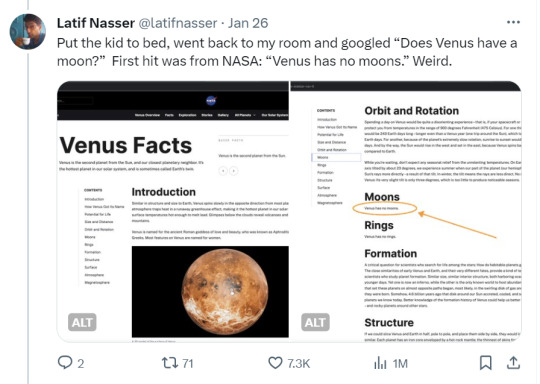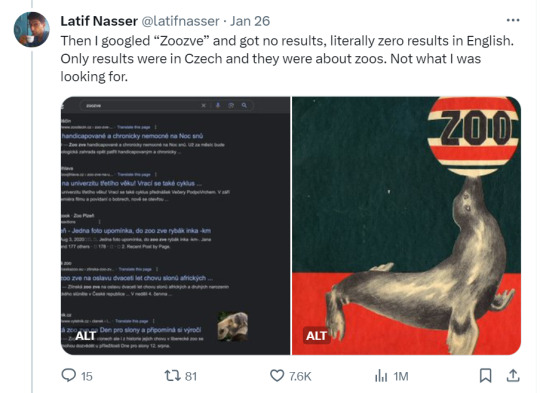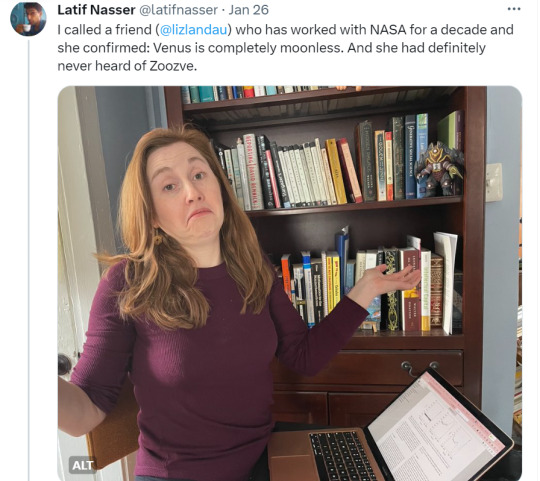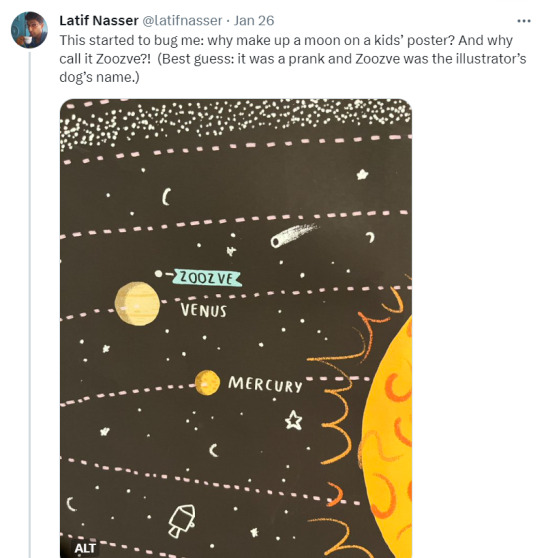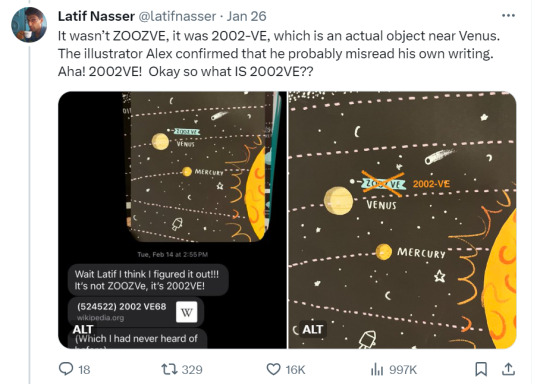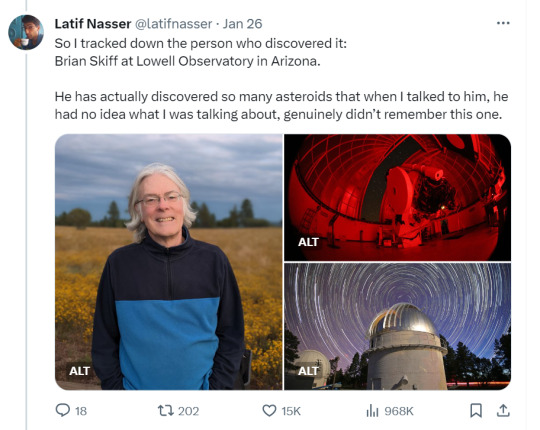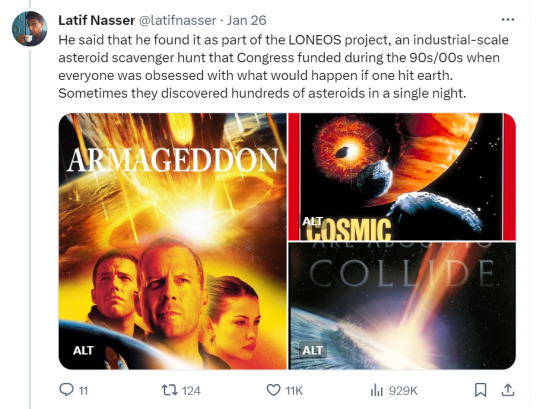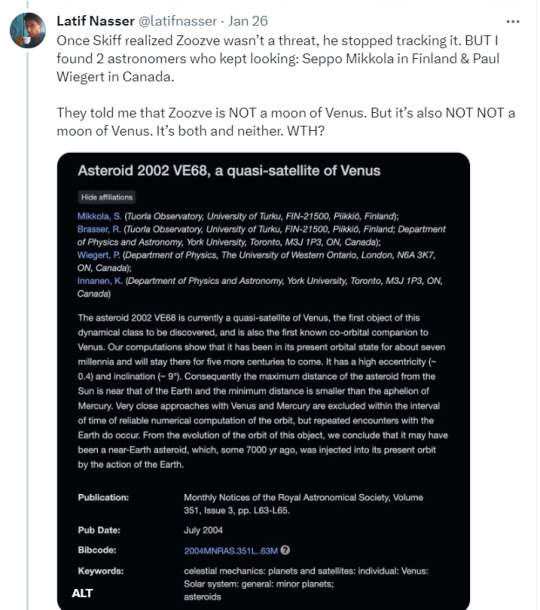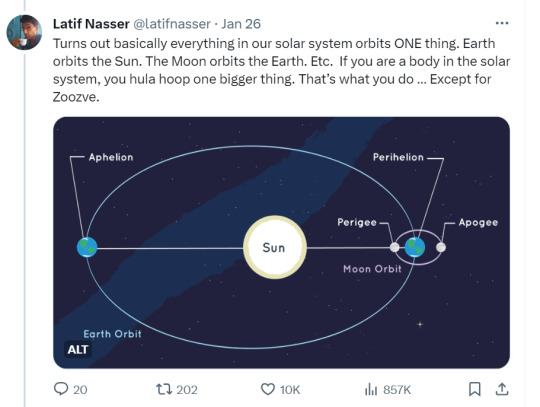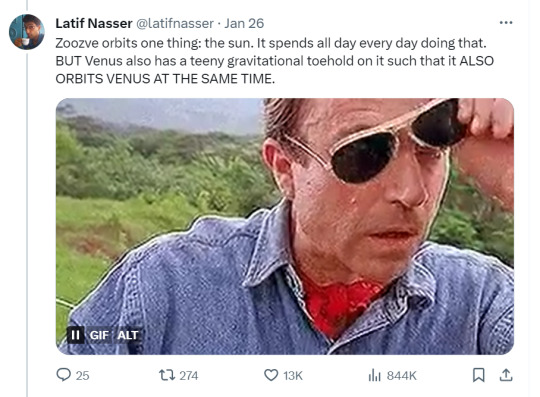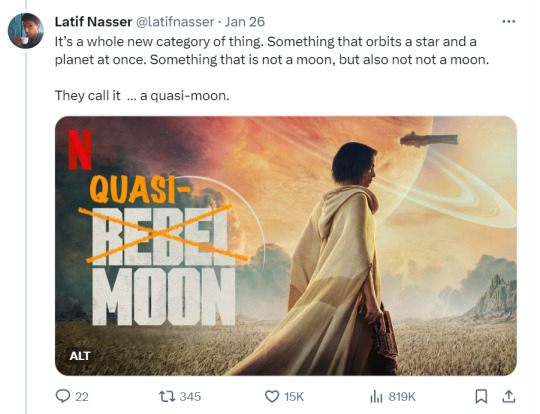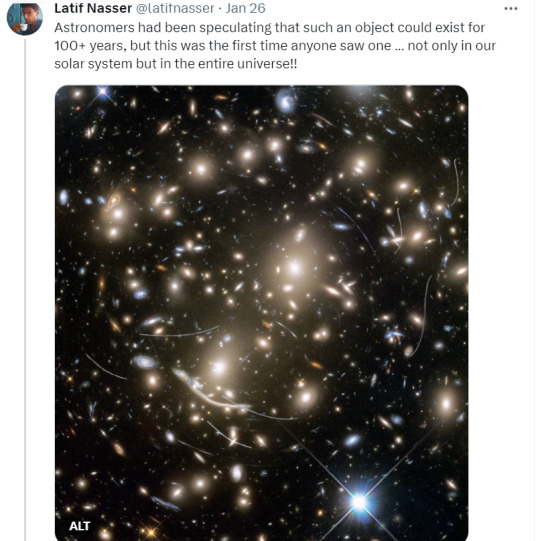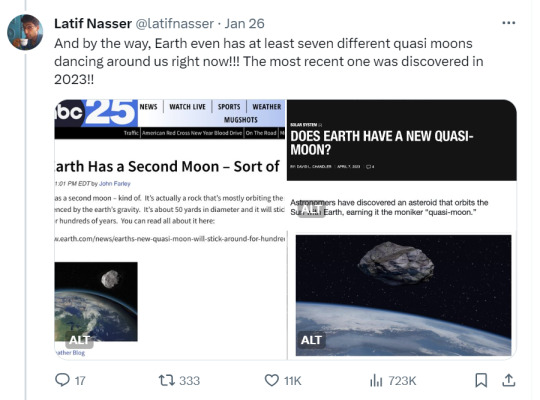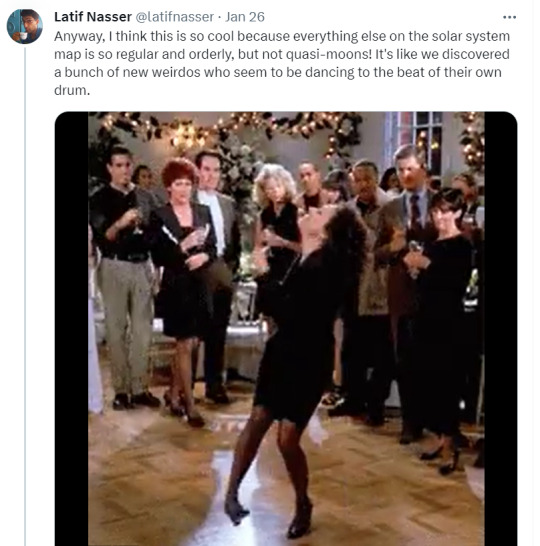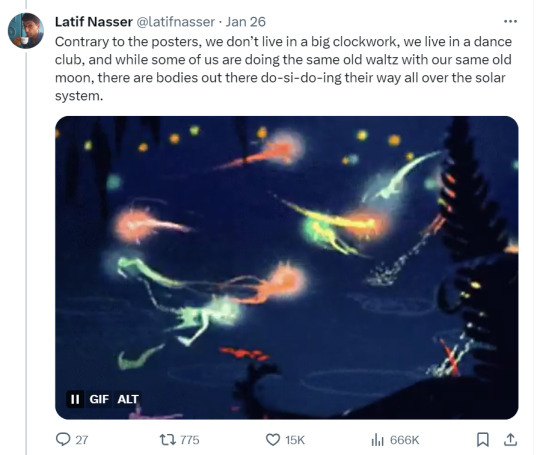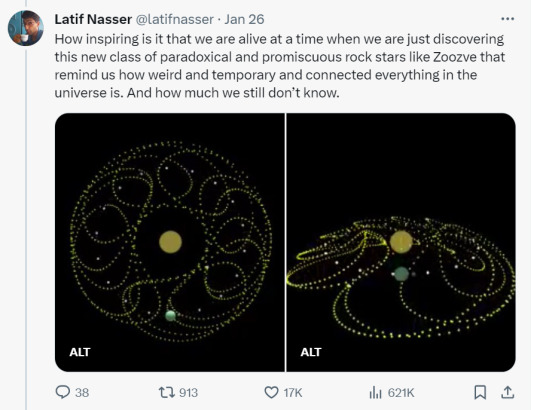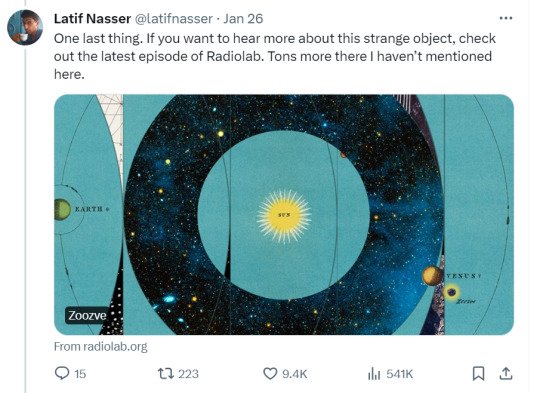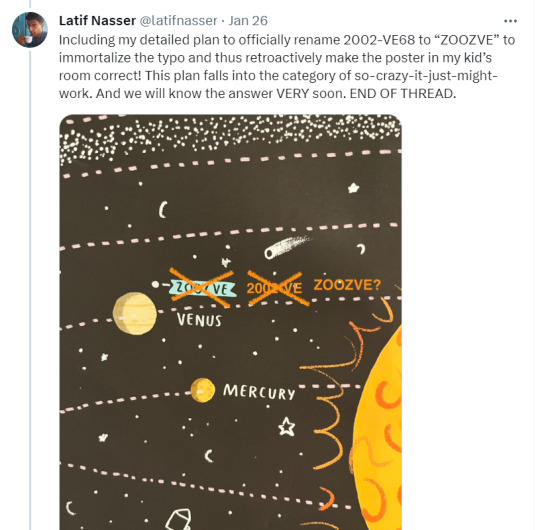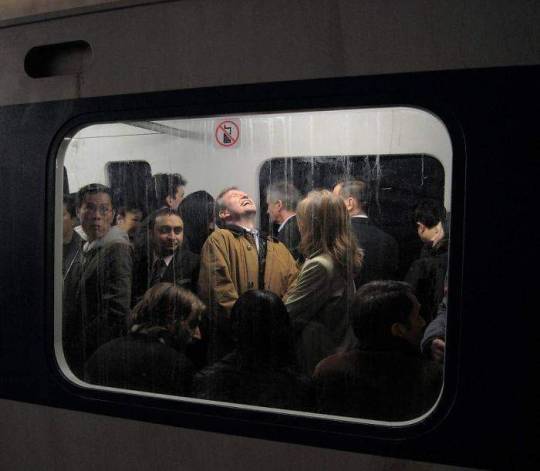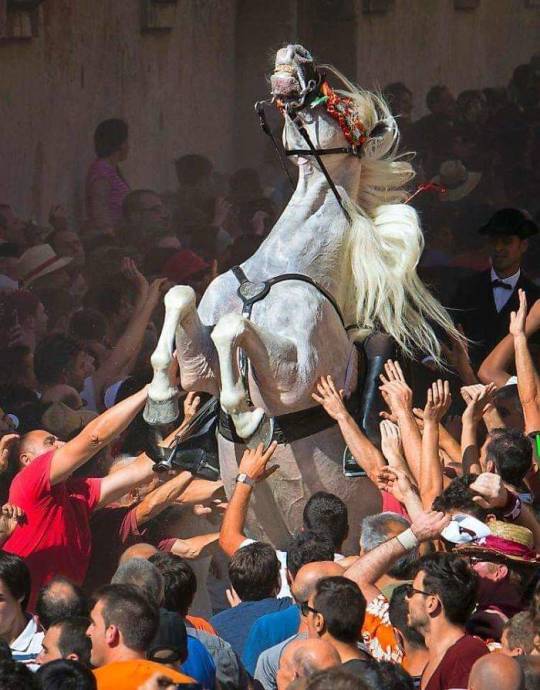Text
You are never dedicated to something you have complete confidence in. No one is fanatically shouting that the sun is going to rise tomorrow. They know it's going to rise tomorrow. When people are fanatically dedicated to political or religious faiths or any other kinds of dogmas or goals, it's always because these dogmas or goals are in doubt.
Robert M. Pirsig, Zen and the Art of Motorcycle Maintenance: An Inquiry Into Values
89 notes
·
View notes
Text
Mathematics is the language of the universe.
Its sole purpose is the understanding of it.
It yearns for the infinite, the universal and the absolute
It hopes to reach the stars by virtue of its beauty.
It creates a formula for truth in which we put all our faith.
It is poetry.
4 notes
·
View notes
Text
They separated poetry from philosophy,
They wanted to build their pantheon,
Their gods looked like them, talked like them,
They made themselves into them.
But,
They forgot the meaning of everything.
Philosophy is the first science, a way of knowing the world,
It is the only way, the supreme way, the best way.
Philosophy is accepted as knowledge,
Universal.
But,
It is chained by flighty bounds to a slippery subject.
Poetry is the first prophecy, a way of understanding the world,
It is the only way, the supreme way, the best way.
Poetry is accepted as understanding,
Universal.
And,
They only go together, always hand in hand.
4 notes
·
View notes
Text
Towards a Philosophy of Magick, Pt. 4: Paradigms
Presenting to notion of paradigms in magick and the issues surrounding them. Written 9-25-23.
“‘Explain this happening!’
‘It must have a ‘natural’ cause!’
‘It must have a ‘supernatural’ cause!’ } Let these two asses be set to grind corn.
May, might, must, should, probably, may be, we may safely assume, ought, it is hardly questionable, almost certainly—poor hacks! let them be turned out to grass!
Proof is only possible in mathematics, and mathematics is only a matter of arbitrary conventions.
And yet doubt is a good servant but a bad master; a perfect mistress, but a nagging wife.
“White is white” is the lash of the overseer: “white is black” is the watchword of the slave. The Master takes no heed.
The Chinese cannot help thinking that the octave has 5 notes.
The more necessary anything appears to my mind, the more certain it is that I only assert a limitation.
I slept with Faith, and found a corpse in my arms on awaking; I drank and danced all night with Doubt, and found her a virgin in the morning.” -Aleister Crowley, “The Book of Lies”, Ch. 46: “Chinese Music”
In the postscript to his seminal work “The Structure of Scientific Revolutions”, Thomas Kuhn (1962, 2012) defines the word “paradigm” in two different ways, both of which are important to our discussion.
1. “On the one hand, it stands for the entire constellation of beliefs, values, techniques, and so on shared by the members of a given community.”
2. “On the other, it denotes one sort of element in that constellation, the concrete puzzle-solutions which, employed as models or examples, can replace explicit rules as a basis for the solution of the remaining puzzles of normal science.”
The first use of “paradigm” should be familiar to chaotes (practitioners of chaos magick) from the works of Peter J. Carroll, Phil Hine, et al. This definition describes a system of foundational beliefs, values, and techniques that informs both the theory and practice of magick and guides the interpretation of magickal events. To the degree that these foundational beliefs can be stated clearly and distinctly (by which I mean the system of axioms, definitions, symbols, and rules can be listed completely by some procedure), this is the denotative definition of the word “paradigm”, and thus “cashes out” part of the word’s total meaning. This definition of the word “paradigm” can be used in logical systems to denote the definitions, symbols, axioms, and transformation rules of the system.
However, it is important to note that such logical systems can never be complete, as proven by Kurt Gödel (1931). Any logical system sufficiently complex to say all the sorts of things we want to be able say in it will always include possible true statements that are unprovable within the system. In addition to this, no logical system can be used to prove its own consistency…that consistency must always be shown via a “metasystem” that stands outside/above the logical system in question, and of course the metasystem can only itself be proven consistent by a second metasystem for the first metasystem, and so on. This presents a fundamental logical limitation in any paradigm we choose. To a certain degree, our use of paraconsistent logic aids us in this issue, but the nasty issues at the heart of logic still remain, rendering any logical system we can devise necessarily limited in its scope.
The second usage of the word “paradigm” is, at least in my opinion, the more interesting. This usage presents paradigmatic shared examples that allow for a connotative definition (which “cashes out” the rest of the meaning of the word). We can’t state clearly and distinctly the notions contained in a paradigm using this definition. Instead we use our intuitions of similarity, of “family resemblance”, to recognize other similar examples that “fit” with our paradigmatic shared example.
Another important notion that Kuhn discusses is the “incommensurability” (which means “lacking a common unit of measurement”) of different paradigms. I will use two examples from the physical sciences taken from Kuhn’s text to express this sort of problem.
1. Consider the notion of “gravity” as used by Aristotle in his “On The Heavens” (~350 BCE, 2020) versus the usage by Isaac Newton in his “Principia” (1687, 2016). Aristotle’s concept was that massive objects had an intrinsic property which caused them to fall towards the center of the (geocentric) universe. It was their “nature” to fall in this way. As usual, Aristotle saw the issue teleologically…when he saw a falling rock, he saw an object moving towards its natural goal, the center of the universe. Newton, on the other hand, saw gravity as attraction between all massive bodies. When Newton saw a falling rock he saw two objects, the rock and the Earth, one much more massive than the other, being attracted to each other in proportion to their respective masses and the distance between them. Thus while the situation they observe is empirically nearly identical (one rock falling on Earth is much like another), their respective interpretations derived via their respective paradigms are different. Notably, both paradigms are empirically adequate in their shared contexts. Both describe the physical events addressed accurately and both will make similar predictions about falling rocks on Earth. But once the scale increases and we start talking about planets and stars instead of rocks on Earth, Aristotle’s predictions and Newton’s predictions will begin to differ in ways that make clear the differences in their respective notions of gravity.
2. Now let us consider the notion of “mass” used by Newton in his “Principia” (typified by the formula f=ma) versus the notion of mass used by Einstein in his “On the Electrodynamics of Moving Bodies” (1905) (typified by the formula E=mc²). For Newton, mass is conserved…the mass of an object does not change without some sort of equivalent physical change to the object (e.g. it is made hollow, cut in half and one half disposed of, or somehow changed into a lighter substance through chemical change). For Einstein, mass is relativistic; as it is accelerated towards the speed of light it converts to energy. Again, within their shared contexts (masses accelerated only to very small fractions of the speed of light) the descriptions and predictions of both systems will be more or less identical and empirically adequate. But once a new context is considered, that of accelerations of larger fractions of the speed of light, it is clear that two different notions of “mass” are really being talked about.
Notice two details here:
1. The paradigms and theories compared each use the same terminology and concepts to express their ideas, but they actually mean different things. Aristotle’s gravity is not that of Newton, and Newton’s mass is not that of Einstein. Compare the usage of the word “spirit” in different occult communities operating under different magickal paradigms.
2. The effectiveness and empirical adequacy of the compared theories are equal in some contexts but different in others. Aristotle’s theory holds true as long as your paradigm assumes a geocentric universe, but once the “Copernican Revolution” came along, suddenly the Earth was just one of many planets, and subsequently that model of gravity no longer explained the observations made by astronomers under the new paradigm. This created new problems and an accompanying change in the underlying paradigm, setting the stage for Newton to come along with a new model to explain massive bodies in motion under gravitation with each other. Similarly, Newton’s theory of mass only holds true beneath certain speeds, becoming unable to solve the problem of what happens when acceleration reaches sizable fractions of the speed of light. Thus it is clear that a change in perspective or the context of the issue under consideration can lead to a paradigm shift, which creates new sorts of problems to be solved by the field of study. The new sorts of problems can’t be solved under the theories developed under the old paradigm, so the stage becomes set for a new theory that will allow for solutions of the new problems.
An important consequence of the incommensurability of differing paradigms is that it is impossible to make a principled choice between two given paradigms that are both empirically adequate. This is because the arguments each side will give for why their paradigm is correct will be built on different assumptions, use different definitions of important terms, differ in their practice, and refer connotatively to different paradigmatic shared examples. This means we must use values from outside the paradigms in question to help us choose between those paradigms (more on these values in the section of this work on “Paradigmatic Values”), essentially creating a metaparadigm (a paradigm to talk about paradigms).
However, we are faced with the same logical problem given above…if I use a metaparadigm to justify my choice of paradigms, how do I justify my choice of metaparadigms? This problem is, as far as I know, insoluble. It is just turtles all the way down, with one metaparadigm justifying the next in the series forever. However, since each step in the series does in fact effectively ground the step after it, in my opinion the regress is not vicious any more than the summation of an infinite series is vicious just because we can never fully list the series. In any case, this problem is the same for any and all such logical systems, which means all of mathematics, science, and analytic philosophy has this problem, yet proofs are still proven, transistors still work, and P is still equal to P, so I think we will be alright here in the realm of magick.
In magick, paradigmatic differences are often expressed by the term “tradition”, but this is not quite correct, as several traditions (such as the constellation of traditions commonly called “witchcraft” in “Western” anglophone communities) can share a common paradigm and communities from within the same tradition (e.g. ceremonial magick) can actually turn out to be operating from very different paradigms. In fact, we often observe two members of the same tradition and community actually operating from very different paradigms that both happen to be equally empirically adequate within their respective contexts, and occasionally we find the same person operating from different paradigms at different times or, like some chaotes, engaging in purposeful manipulations of paradigms to pursue operational goals.
Thus, within magick, the behavior we actually observe is different from what we observe in the sciences (especially the physical sciences). What we instead observe is a distinction between what I will call paradigms of belief versus paradigms of practice. A paradigm of belief is a set of grounding ideas behind why and how magick works. A paradigm of practice is a set of operational beliefs that are used to accomplish magickal goals.
One paradigm of belief might, for example, hold that “The spirits of the Goetia are portions of the human brain.” (Aleister Crowley, 1904, 1995) while another may hold that spirits are a type of “discarnate intelligence” (Aleister Crowley, 1929, 1979), but people who operate within either paradigm of belief (or both at different times) may actually operate within the same paradigm of practice (in this case the standard evocation procedures common within ceremonial magick traditions descended from the Hermetic Order of the Golden Dawn on the one hand and the Grimoire Tradition/goetia on the other).
Conversely, different people who share the same paradigm of belief (e.g. magickal realism, where spirits and deities are actually spirits and deities and magick actually causes changes in the world) may operate within various paradigms of practice (e.g. the various methods of casting a magickal circle and creating sacred space practiced by the traditions of witchcraft descended from Gardnerian witchcraft versus the equivalent methods of ceremonial magicians descended from the Golden Dawn). This distinction between these two distinct kinds of magickal paradigms will prove important as we further develop our philosophy of magick.
This kind of variety of paradigmatic beliefs existing within a single field of study is typical of what Kuhn calls “pre-paradigm” periods of science. During these periods Kuhn claims practitioners within the overall community are forced to go back to basic principles again and again, thus limiting the possibility of progress within that field of study. Kuhn argues that what makes the progress within the physical sciences that has been observed within “Western” cultures over the centuries possible is that entire scientific communities have fallen in line—for various reasons both principled and pragmatic—behind a given paradigm, thus leaving the “pre-paradigm” state and entering the state of “standard science”. Under Kuhn’s analysis, the idiosyncratic nature of magick means that it would be very difficult for us (mages at large) to make significant progress in our field of study. However, I do not believe that this is the case. I think the idiosyncratic nature of magick is a feature, not a bug, and in the next section I will argue for why I believe this is the case.
Works Cited:
1. Thomas S. Kuhn, The Structure of Scientific Revolutions, (The University of Chicago Press, 1962, 2012)
2. Kurt Gödel translated by B. Meltzer, On Formally Undecidable Propositions of Principia Mathematica and Related Systems, (Dover Publications, New York 1962, 1992)
3. Aristotle translated by J. L. Stocks, On The Heavens, Retrieved from http://classics.mit.edu/Aristotle/heavens.2.ii.html
4. Isaac Newton translated by I. Bernard Cohen, Anne Whitman, and Julia Budenz, The Principia: The Authoritative Translation and Guide, (University of California Press 2016)
5. Albert Einstein, On the Electrodynamics of Moving Bodies, Retrieved from https://users.physics.ox.ac.uk/~rtaylor/teaching/specrel.pdf
6. Aleister Crowley, The Initiated Interpretation of Ceremonial Magic, published as part of The Goetia: The Lesser Key of Solomon the King, (Red Wheel/Weiser, LLC 1995)
7. Aleister Crowley, The Confessions of Aleister Crowley, (Routledge and Keegan Paul, 1979)
4 notes
·
View notes
Text
absurd
suicide
my feelings
pouring out into an empty chasm but is also a cave
and echo chambers of my tiny island
i think
as long as something exists or is alive
it shall occupy
time and space, a tangible mass, efforts warranted
all to nurture and still we go nowhere,
or rather it is i alone
that goes nowhere
(kyskyskys) as long as youre alive youre an opportunity cost
im hunched over thinking typing this
im breathing with nowhere to go
nowhere to be my home
a pill so hard to swallow, a thought still so unfamiliar
to myself
and i am just a depressed black hole that has yet to accept
the ugliest of what real life could be
and tell me, if i am absurd, if i can never do right
why am i constantly making the wrong turns
if there are no bad men, only benighted people
i am making my own experience a living hell,
and you feel sorry for me, you detest me
because i am a mirror of inefficiency and wasted resource
you just want better for me
and i just want my next minute to refresh me,
forget.
(forget)
2 notes
·
View notes
Text
Between Existence and Self-Destruction: In Search of Meaning and Action - An Essay
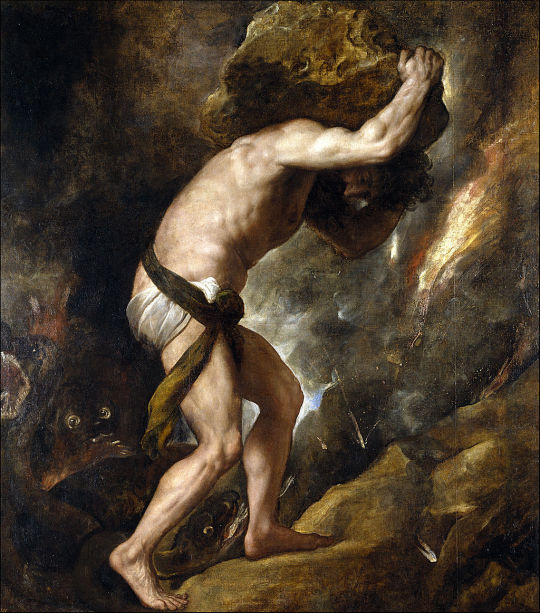
An individual state leading to a deep loss of meaning and a sense of the world's meaninglessness can be caused either by a series of fateful events leading to a strong sense of melancholy or by sudden insights into the insignificance of one's own existence while facing the universe's indifference.
In his 2000 essay "Melancholy and the Act", Slovenian philosopher Slavoj Žižek explores the complex connections between melancholy and action in human psychology and the social context. He challenges the conventional idea of melancholy as a purely passive or paralyzing state, arguing instead for a more profound analysis of this emotional condition. Žižek claims that melancholy is a special form of pain and sadness, often considered a state of stagnation and powerlessness. Contrary to this common perception, he argues that melancholy contains an unrecognized potential for action.

According to Žižek, melancholy can be an internal catalyst that stimulates individuals to look beyond existing limits and norms, developing new perspectives. The crux of his argument lies in the idea that, paradoxically, melancholy involves a kind of activity. It can be a source of creativity, leading people to engage more deeply with their suffering and derive new insights and energy. This process can result in transformative actions, whether on a personal level through self-reflection and self-overcoming or on a societal level through the pursuit of change and innovation.
This realization can lead to a profound alienation from one's own existence, potentially extending to thoughts of suicide. It often arises from the incompatibility between expected outcomes or the meaning of life and the actual chaotic nature of existence. This discrepancy can cause deep uncertainty and frustrate the search for a concrete life purpose.

Romanian philosopher Emil Cioran often grappled with the question of whether life is worth living in his writings. The depressions and insomnia he suffered from an early age strongly influenced his first book, "On the Heights of Despair," published in 1934. Cioran was obsessed with the idea of suicide, critically engaging with it in his aphorisms and essays. He argued that contemplating suicide is necessary for leading a better life. By confronting suicide, we confront the profound suffering associated with existence. This humility enables us to change the deepest aspects of ourselves.

Simultaneously, it reminds us that our peculiar human ability to contemplate suicide elevates us above everything else in nature or heaven. Cioran believed that failure governs the world, similar to the capricious God of the Old Testament. Despite his pessimism, actual skepticism, and nihilism, Cioran remained joyous in a peculiar way. It is not a pessimism that can be traced back to simple origins, as individual origins themselves are questionable.Most people go about their daily routines without being aware of the profound absurdity and randomness of their lives. They live in a system of cause and effect that provides a certain predictability and security. These people rarely experience their lives as a tragedy.

French writer and philosopher Albert Camus notes that most human actions are based on a logical error that ultimately leads to a loss of meaning. This loss of meaning can lead to self-doubt and a deep sense of meaninglessness that weakens motivation for personal endeavors.
The idea of suicide as a response to the absurdity of life, however, is considered by Camus, in contrast to Cioran, as a surrender to the incomprehensibility of the world. He argues that a stronger and more authentic stance is to be aware of the absurdity of life and still choose to live. Suicide is seen as an admission of the inability to understand or endure life. Camus uses the metaphor of Sisyphus to illustrate how one can confront the absurdity of life.
Sisyphus is condemned to roll a rock up the hill, only to see it roll down again repeatedly. Despite the apparent futility of this task and the absurdity of his existence, Sisyphus finds happiness and joy in this act. He rebels against the absurdity by despising it but simultaneously accepts it.

In the intricate web of existential musings we find a rich tapestry of perspectives on the human experience—ranging from the transformative potential within melancholy to the contemplation of suicide as a confrontation with life's inherent suffering, and finally, the defiant acceptance of the absurd. As we navigate this intellectual terrain, one overarching theme emerges: the profound beauty inherent in the struggle for meaning and the authentic experience of human existence.
Žižek urges us to reconsider melancholy not as a paralyzing force, but as a catalyst for innovation and societal change. Cioran's dark fascination with suicide invites us to confront the depths of our suffering, recognizing that in such confrontation lies the potential for profound transformation. In contrast, Camus advocates for a resilient defiance against the absurdity of life, finding joy in the very act of rebellion. Ultimately, these philosophical perspectives converge on a shared insight: that life's inherent absurdity need not lead to despair or resignation. Instead, the human spirit possesses the remarkable capacity to extract meaning from the seemingly chaotic and random nature of existence. In the daily struggle, in the pursuit of understanding and compassion, lies the essence of our shared humanity.

As we grapple with the existential questions posed by these philosophers, let us not merely dwell on the challenges and uncertainties but embrace the beauty of our collective journey. In the face of life's absurdities, we discover the resilience to persevere, the courage to confront our deepest fears, and the capacity to find solace in the shared human experience. The pursuit of meaning, in all its complexity, becomes a testament to the indomitable spirit that propels us forward, even in the shadow of existential uncertainty.
In this view, it is crucial for people to continue living despite the absurdity of life and become aware of human conditions to develop compassion for the suffering of others.
Despite the apparent absurdity of life, beauty lies in the daily struggle and in the moments of genuine experience that human existence has to offer.
Davis Jahn
12 notes
·
View notes
Text
What money can't buy: the Moral Limits of Markets (Micheal J. Sandel)
Sandel's lectures raise moral objections to market expansion, especially the commodification of certain "goods": surrogacy, military enlistment, and the wealth gap in democratic nations.
Sandel takes a two-pronged attack on undesirable commodification: 1) coercion and 2) corruption.
I found the appeal to corruption to be the more interesting but also finicky. (p 104) Sandel references utilitarian decision-making as a form of market-orientated thinking that degrades the goods. He specifically notes how each individual consequential consideration is flattened into pieces of utility. He calls this process, and the conversion into monetary terms a "translation" and posits that value can be lost in the process (p 105). I am partial to the argument, agreeing strongly with Sandel that commodification of certain goods degrades their value in the appraisal and is morally inappropriate, but I think that the nuance of each item, event, and being that we want to preserve by not commodifying will become an issue in defending the claim not to flatten their nuance. This is because as Sandel points out on page 106, the distinction between coercion and corruption is that coercion always appeals to consent while corruption appeals to multiple ideals from overlapping, conflicting, and simply differing ideologies -- ie the appeal against the wealth gap draws upon republican civic virtues that apply in self-government, surrogacy on the elusive definitions of parenthood that can differ between cultures, etc).
How do we argue for the preservation of value nuance from multiple ideologies without flattening the nuances or committing to relativism in the process?
6 notes
·
View notes
Text
"Create or be consumed"
"Create or be consumed" was a line I never paid much heed to, but now I can't help but mull over the thought. After all, thoughts are all I've been left with the past few days.
Being trapped within these four walls, I can't help but think of all the things I've consumed: endless art, the noise of the internet, and the books that always kept my feelings at bay. Creating was what I had been good at, after all. But after the great wave, after everyone became trapped, all we could do was consume. We consumed the ramblings of people online, the blaring music that washed away the thoughts in our minds, and the shows that had us on our seats, rooting for our favorites. We consumed until we became blind and angry, till hunger gleamed in our eyes.
I was so caught up in consumption that the thought of picking up a pencil terrified me, and a pencil shouldn't be terrifying now, should it? I have woken up from this bleary dream. If we continue this any longer, I fear what will be left of us.
To whoever is reading this, please, I beg you to create. To pick up that pencil once held by Leonardo da Vinci. To overlook is to bring regret upon yourself. Turn away from consumption, my dear readers, and be the ones amongst the few who dared to create.
63 notes
·
View notes
Text
Imagine an alien sharing a cool human fact they just learned like ”hey guys did you know that the silvery markings on humans actually aren’t true stripes? They’re called stretch marks, they happen when the human is growing fast enough to actually outgrow their skin, which is apparently something that just fucking happens to almost all of them at some point of their life.”
and another one is like ”wait so you’re saying humans don’t have stripes.”
”actually they do, but the stripes are invisible. There’s genetic code that’d give them stripes but they’re just the same colour as the rest of the skin. So the visible stripes are not real stripes and the real stripes are invisible.”
”I swear if you tell me one more weird human thing today I’m beating your ass.”
220K notes
·
View notes
Text
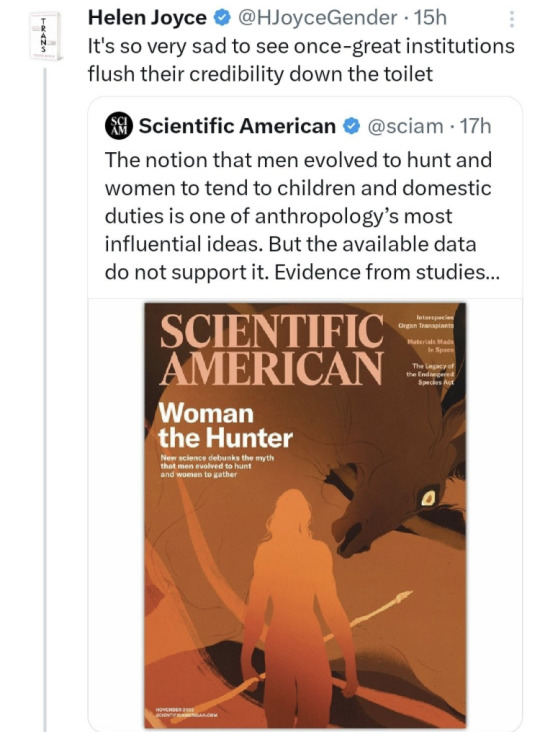
helen “trans people are perpetuating gender steriotypes” joyce is now upset that the scientific american is writing about how women were hunters too back in the day, not just mothers and caretakers. feminist win!
41K notes
·
View notes
Text
A little advice from someone studying extremist groups: if you’re in a social media environment where the daily ubiquitous message is that you have no hope of any kind of future and you can’t possibly achieve anything without a violent overthrow of society, you’re being radicalized, and not in the good way.
83K notes
·
View notes
Text
to all my researchers, students and people in general who love learning: if you don't know this already, i'm about to give you a game changer
connectedpapers
the basic rundown is: you use the search bar to enter a topic, scientific paper name or DOI. the website then offers you a list of papers on the topic, and you choose the one you're looking for/most relevant one. from here, it makes a tree diagram of related papers that are clustered based on topic relatability and colour-coded by time they were produced!
for example: here i search "human B12"

i go ahead and choose the first paper, meaning my graph will be based around it and start from the topics of "b12 levels" and "fraility syndrome"

here is the graph output! you can scroll through all the papers included on the left, and clicking on each one shows you it's position on the chart + will pull up details on the paper on the right hand column (title, authors, citations, abstract/summary and links where the paper can be found)
you get a few free graphs a month before you have to sign up, and i think the free version gives you up to 5 a month. there are paid versions but it really depends how often you need to use this kinda thing.
14K notes
·
View notes
Text
Social platforms are unnaturally rich with sources of moral outrage; there is always a tweet or news development to get angry about, along with plenty of users to highlight it to a potential audience of millions. It's like standing in the center of the largest crowd ever assembled, knowing that, at any moment, it might transform into a mob. This creates powerful incentives for what the philosophers Justin Tosi and Brandon Warmke have termed "moral grandstanding" - showing off that you are more outraged, and therefore more moral, than everyone else. "In a quest to impress peers," Tosi and Warmke write, "grandstanders trump up moral charges, pile on in cases of public shaming, announce that anyone who disagrees with them is obviously wrong, or exaggerate emotional displays."
Off-line, moral grandstanders might heighten a particular groups sensitivities a few degrees by pressuring peers to match them. Or they might simply annoy everyone. But on social networks, grandstanders are systematically rewarded and amplified. This can trigger "a moral arms race," Tosi and Warmke cautioned, in which people "adopt extreme and implausible views, and refuse to listen to the other side.
Max Fisher, The Chaos Machine: The Inside Story of How Social Media Rewired Our Minds and Our World
411 notes
·
View notes

